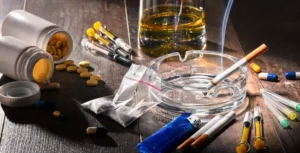
However, if multiple indicators are present, it may be an indication of a more significant issue. “If tremors are a regular guest after drinking, it signals the need for action.” If those shakes are sticking around too long, don’t hesitate to reach out to a doctor. Taking care of yourself is the best way to avoid those post-party jitters and keep your hands steady.
- What they are doing is mitigating the short-term alcohol withdrawal in exchange for dealing with the pain later.
- This helps to maintain a healthy fluid balance and replenish the body’s water stores.
- It’s important to note before looking at what the tremors are that if you notice the tremors are not lessening over time or feel like something is not right, seek immediate medical help.
- Electrolytes help replenish the essential minerals lost due to alcohol’s diuretic effect.
Risks of Heavy Drinking
When someone stops drinking, their nervous system reacts by becoming more active, which leads to involuntary trembling. This shift occurs because alcohol acts as a depressant, altering neurotransmitter activity in the brain. Understanding the role of dehydration in the development of hangover shakes highlights the importance of staying hydrated before, during, and after alcohol consumption. By prioritizing hydration, individuals can mitigate the impact of dehydration on hangover symptoms and promote a smoother recovery process.
- Several factors can contribute to these symptoms, ranging from the effects of alcohol on the body to various health conditions.
- Remember, professional help is crucial in managing symptoms of alcohol withdrawal, and it’s always safer to seek medical advice if in doubt.
- It’s also important to be aware of the potential risks of using other substances, such as pain relievers or medications, in combination with alcohol.
- Ingredients such as water, coconut water, unsweetened milks, fruits, and vegetables can provide ample hydration.
Self-Care Strategies for Hangover Shakes
By consuming alcohol in moderation, individuals can minimize the risk of experiencing severe drug addiction treatment hangover symptoms. It is advisable to pace yourself, know your limits, and be mindful of the effects of alcohol on your body. While hangover shakes themselves are usually a temporary and manageable condition, it is crucial to be aware of when medical attention is necessary.
- Beat hangover shakes with our ultimate recovery guide – discover hydrating, nutrient-rich shakes for relief.
- However, it’s important to note that not everyone who experiences alcohol withdrawal will have shakes or tremors, and the severity can vary 2.
- As a result, being aware of the signs that long-term alcohol abuse has transitioned into an alcohol use disorder can help you decide whether it’s time for rehab.
- Once the alcohol is metabolized and eliminated from the body, withdrawal symptoms can occur, including tremors and shakes.
- Remember, everyone’s tolerance to alcohol varies, so it’s important to know your limits.
- The shakes experienced may also be linked to changes in neurotransmitter activity as the body reacts to the absence of alcohol, leading to an overactive nervous system.
- Adequate sleep and downtime can help alleviate symptoms and promote overall recovery.
The Role of Positive Visualization in Addiction Treatment
Replenishing lost fluids by drinking water or electrolyte-rich beverages can help alleviate the shakes. A person who regularly uses alcohol and then stops is at risk of severe alcohol withdrawal symptoms, including delirium tremens (DT). After a night of drinking, the body may become dehydrated and depleted of vital nutrients. The symptoms can manifest differently, affecting various body parts like hands, arms, and even the voice, and can last up to a day or two depending on individual circumstances (Healthline).

This is a serious medical condition that can be life-threatening if not treated promptly. For people who drink regularly, hangover shakes can be a mild form of alcohol withdrawal. Your body goes through an adjustment period as it tries to re-regulate itself. The best way to prevent hangover shakes is to avoid drinking too much alcohol in the first place. If you do choose to drink, make sure to drink plenty of water to stay hydrated and eat a meal before drinking to help maintain your blood sugar levels.
Managing anxiety and stress levels is crucial in minimizing the impact of hangover tremors. Engaging in relaxation techniques, such as deep breathing what causes hangover shakes exercises or meditation, can help alleviate anxiety symptoms. Additionally, seeking support from friends, family, or professionals can provide valuable guidance and coping strategies. Talk with your healthcare professional if you’re concerned that frequent heavy drinking may lead to serious problems, such as alcohol withdrawal. Smoothies can be an effective way to increase fluid intake and replenish electrolytes lost due to alcohol consumption.
Indicators of Alcohol Dependency

A hangover usually begins a few hours after you finish drinking, as your blood alcohol concentration (BAC) begins to fall. Generally, symptoms peak when BAC hits zero, but can continue for up to 24 hours afterward. Optional boosters can be added to hangover shakes to enhance their nutritional value and improve the recovery process. These can be tailored based on personal taste preferences and specific needs.


An electrolyte imbalance, especially a deficiency in magnesium and potassium, can contribute to muscle cramps, spasms, and tremors. Replenishing electrolytes through proper hydration and consuming electrolyte-rich foods or beverages can help restore balance and reduce the occurrence of hangover tremors. Considering dietary factors can also contribute to preventing hangover shakes. Consuming food that includes carbohydrates before drinking alcohol helps slow down the absorption of alcohol into the bloodstream. This can help mitigate the effects of alcohol on the body, including the onset of shakes. Another effective strategy for preventing hangover shakes is to eat before and during alcohol consumption.
Symptoms of Concern
By practicing moderation in alcohol consumption, staying hydrated, and consuming food before and during alcohol consumption, you can help reduce the chances of experiencing hangover shakes. By following these remedies and considering individual impact factors, you can take steps to prevent and alleviate hangover effects. However, it’s important to remember that the best way to avoid a hangover is to drink alcohol in moderation or abstain altogether. If you find that you are regularly experiencing severe hangovers or struggling with alcohol-related issues, it may be beneficial to seek professional help and support. Drinking slowly and spacing out your alcoholic beverages can help your body process the alcohol more effectively, reducing the likelihood of experiencing shakes and other hangover symptoms. It’s important to note that while these remedies can help alleviate hangover shakes, the best way to prevent them is by drinking alcohol in moderation.
